Swiss want back into the Human Rights Council
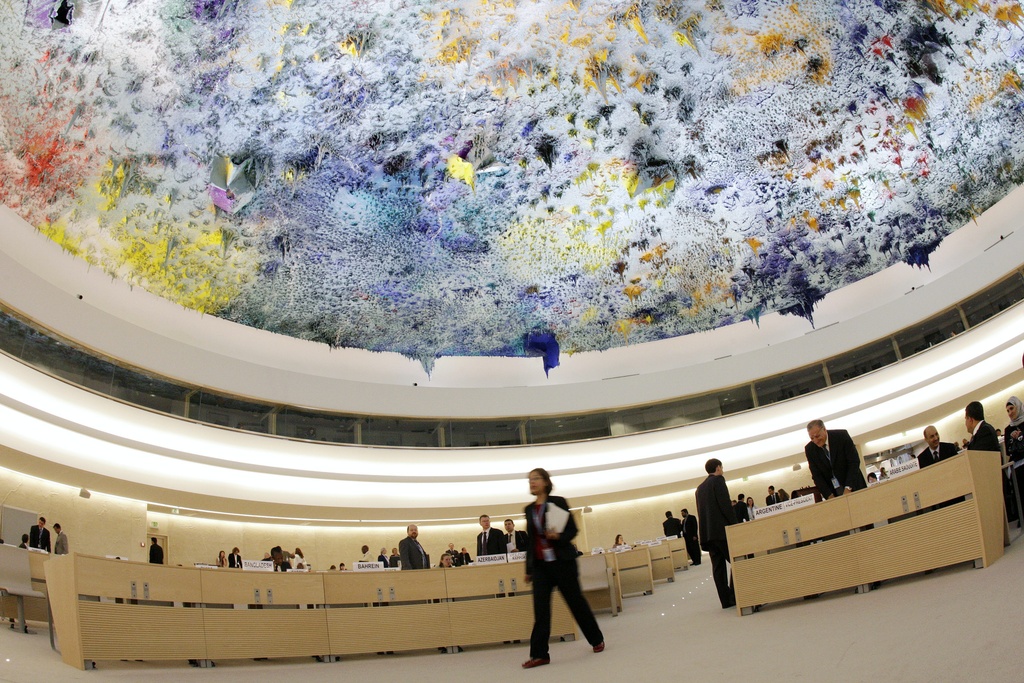
At the United Nations General Assembly in New York on Thursday, it is the turn of 14 of the 47 members of the Human Rights Council to be replaced.
After a one-year pause, Switzerland has applied once again for a seat on the Geneva-based body. However, the decision in November 2009 by 58 per cent of Swiss to ban the construction of minarets didn’t do the country any favours.
In March, a council resolution said a ban was a “manifestation of Islamophobia that clearly contravenes international human rights obligations concerning freedom of religion, belief, conscience and expression”.
Although Switzerland wasn’t directly mentioned, it was clear who was meant.
Nevertheless Swiss politicians maintain that upholding human rights is an important pillar of Swiss foreign policy.
The Human Rights Council, which replaced the discredited Commission on Human Rights in 2006, will undergo a two-phase evaluation at the end of the month, first in Geneva and then in New York.
“In this important phase we want to make our contribution to the consolidation and credibility of instruments such as the Universal Periodic Review [of the human rights practices of every state in the world, once every four years] and the role of special rapporteurs,” Johann Aeschlimann, spokesman for the Swiss foreign ministry, told swissinfo.ch.
He added that this was one of the main reasons for Switzerland’s candidature.
Protests
Despite the minaret ban – which also attracted flak from various European governments, the Council of Europe and the United States – Switzerland’s seat should not be in danger.
That said, the talk in New York is that the Swiss shouldn’t expect to get as many votes as they did when they first applied for a seat in 2006.
The second free seat in the group of Western states is being sought by Spain.
In the African Group, Angola, Libya, Uganda and Mauretania are up for election. For Asia there are Malaysia, the Maldives, Qatar and Thailand; for Eastern Europe, Poland and Moldova; for Latin America and the Caribbean Ecuador and Guatemala.
Non-governmental organisations (NGOs) are protesting against the candidatures of Libya, Angola, Mauretania, Qatar and Malaysia and are demanding member states do not consider them when voting.
Libya?
The application of Libya in particular sends the “horrifying message” that a country that systematically violates human rights could be a member of the Human Rights Council, said UN Watch and Freedom House in a statement.
Switzerland will have special reason to raise eyebrows at the mention of Libya: it has been involved in a bitter diplomatic stand-off with Moammar Gaddafi for almost two years and one Swiss citizen has been held hostage in Tripoli since July 2008. Gaddafi recently urged for a holy war against the Swiss.
Until a few weeks ago Iran was also looking for a seat, generating even more protests than Libya. The US and many other states intervened. In the end, Iran dropped its candidature. It appears the US was considering a boycott of the council had Iran been elected.
NGOs point out that there are only 14 candidates for the 14 seats. The general assembly is thus not so much electing as giving its blessing, they say.
Bloc voting
The high hopes for the Human Rights Council, which stems from a Swiss initiative, have not always been met.
One criticism is that it is prone to bloc voting and is controlled by some Middle East and African nations, supported by China, Russia and Cuba. In addition, many resolutions are seen as being politically motivated as opposed to based on human rights.
The council has been criticised by some Western countries for its fixation on Israel – as of January 24, 2008, Israel had been condemned 15 times in less than two years – while other events in the world such as Darfur, Tibet, North Korea and Zimbabwe have not been discussed.
Islamic countries, owing to their number, play a prominent role in the council and are often able to help a resolution pass – or fail.
Swiss role
The Swiss foreign ministry considers the council to be “the main UN body for promoting and protecting human rights on a multilateral level”, Aeschlimann said, adding that Switzerland remained convinced it could only contribute to the defence of human rights throughout the world if it played an active role.
“Basically the Human Rights Council is one of those bodies that most clearly reflect the tensions of a changing world and the antagonisms between blocs,” he said.
As a result, he explained, the number of proposals was increasing to curb the autonomy of the Office of the UN High Commissioner for Human Rights or UN special rapporteurs. There were also setbacks concerning national mandates.
Aeschlimann said Switzerland was working “to find dialogue and fight the logic of bloc thinking, which is one of the council’s biggest stumbling blocks – and thereby remain true to our principles”.
He concluded: “As a member of the council, Switzerland can make its voice heard better – all the more since the first evaluation phase will take place in Geneva.”
Rita Emch in New York, swissinfo.ch (Translated from German by Thomas Stephens)
Swiss Foreign Minister Micheline Calmy-Rey presented the concept of the Human Rights Council in March 2004 to replace the widely discredited and highly politicised UN Human Rights Commission created in 1946. The UN officially accepted the idea in September 2005.
The first session of the UN Human Rights Council took place in June 2006 at its headquarters in Geneva. The Council reports directly to the UN General Assembly.
It consists of 47 member states, which are selected with absolute majority by the UN General Assembly. It meets at least three times a year and can also hold special meetings to discuss crisis situations.
The 27 seats of African and Asian countries heavily outvote western countries, which hold seven seats on the council.
Switzerland was one of 47 countries to sit on the council from 2006-2009 but has been just an observer for the past year. The country has applied to be a full member from 2010-2013. The UN General Assembly vote on the matter in May.
A resolution of the UN General Assembly creating the council called for two review processes of the council in 2011.
In one the council was asked to review its working methods and functioning after five years.
The second review in New York will assess the status of the council and whether it should be a principle body of the UN like the General Assembly.

In compliance with the JTI standards
More: SWI swissinfo.ch certified by the Journalism Trust Initiative

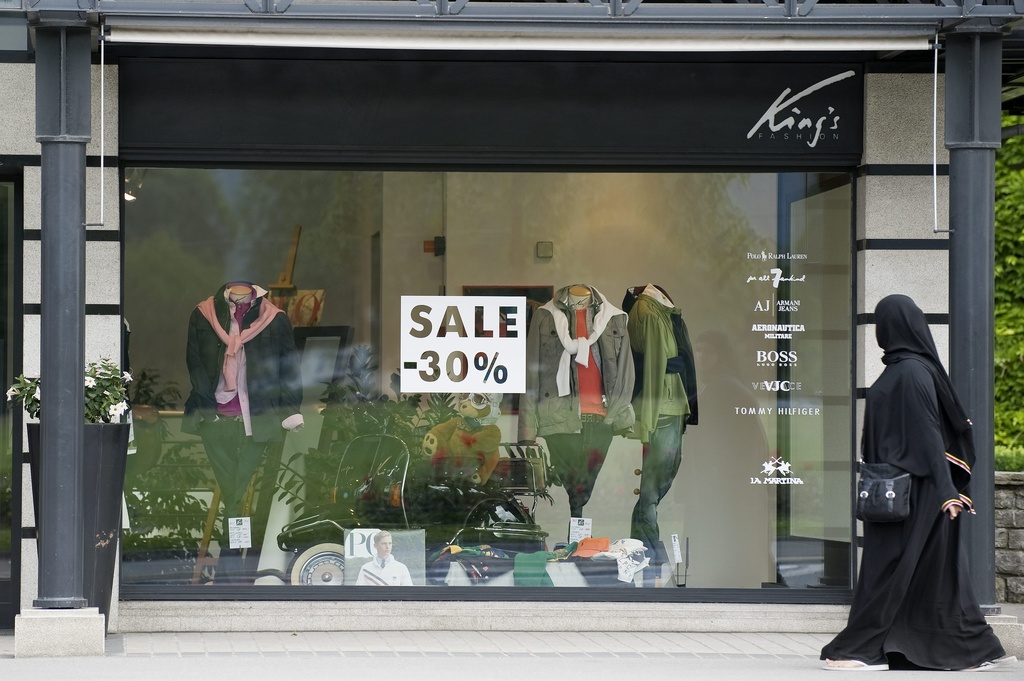
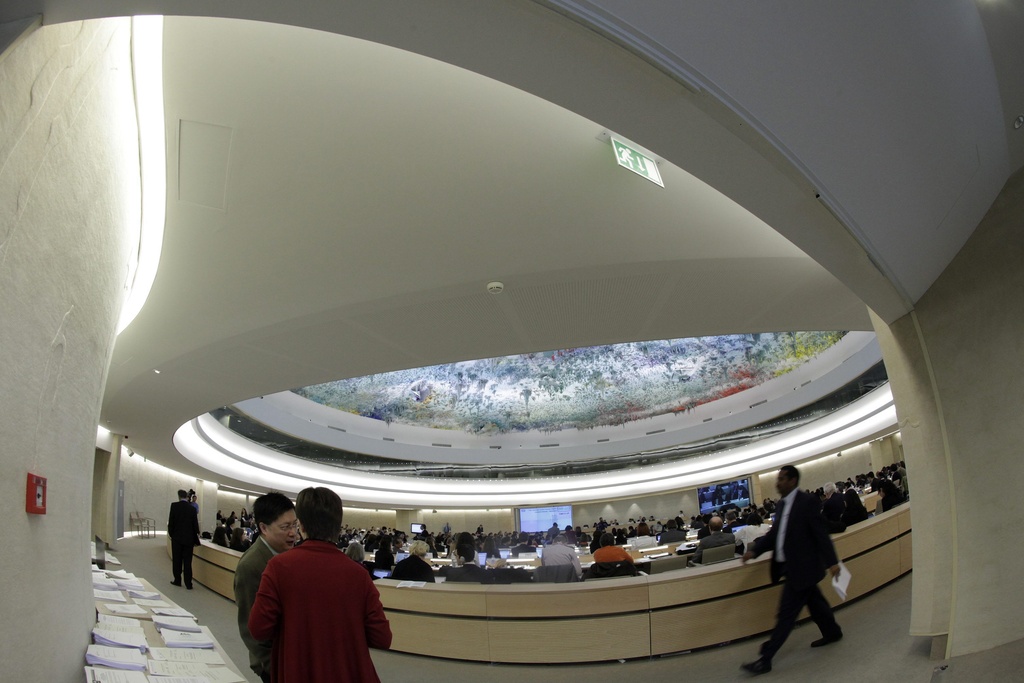
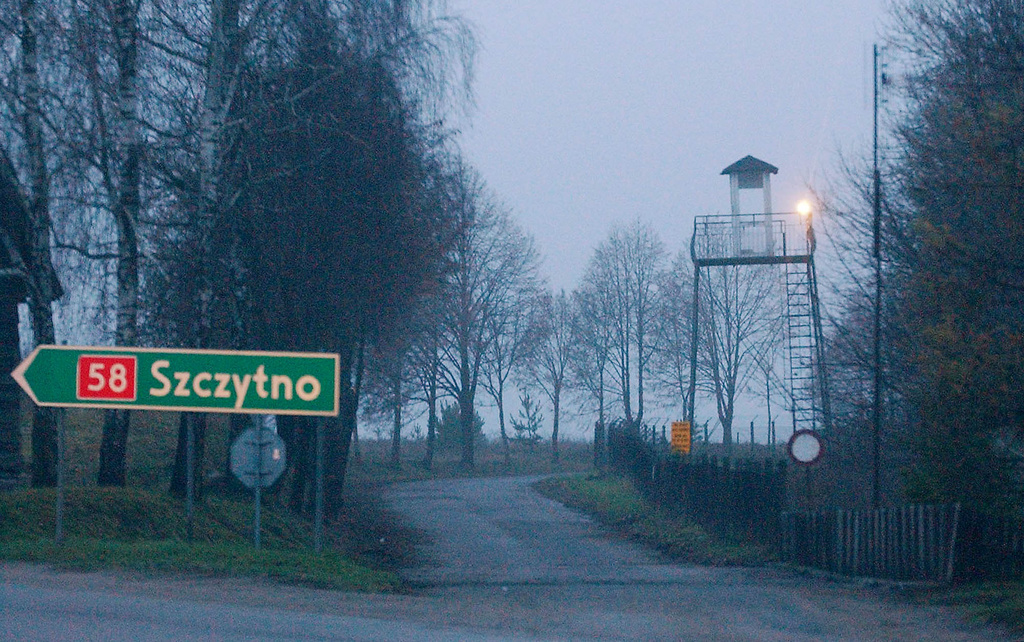
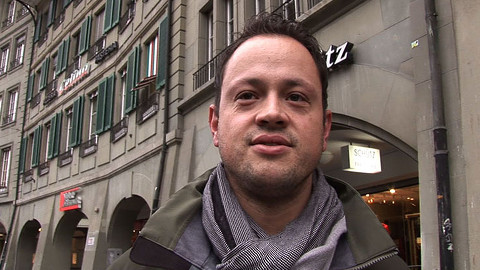
You can find an overview of ongoing debates with our journalists here. Please join us!
If you want to start a conversation about a topic raised in this article or want to report factual errors, email us at english@swissinfo.ch.